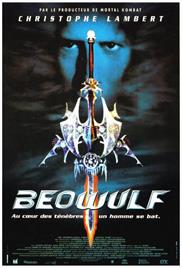Be Careful of Fake Websites. Always use HindiMovies.to domain & Join our Telegram Channel for Latest Updates.

Likes: 45
Views: 4.87K
This post-apocalyptic future story is based on the 8th century Saxon epic poem about the knight who battled a monster in a medieval castle. In this story, Beowulf is a wanderer who learns about a man-eating creature called Grendel which comes in the night to devour warriors trapped at the Outpost. The Outpost is ruled by Hrothgar. He has a daughter, whose husband may have been murdered by the Outpost’s master of arms.
Duration: 95 min
Released: 1999
IMDb Rating: 3.9/10 (8,838 Votes)
Genre: Action, Adventure, Dubbed Movies, Fantasy
Stars: Christopher Lambert, Rhona Mitra, Oliver Cotton, Götz Otto
Directors: Graham Baker
Writers: Anonymous, Mark Leahy, David Chappe
Year: 1999
Beowulf (1999): A Dark Fantasy Adventure
Introduction
The 1999 film Beowulf brings to life one of the oldest epic tales in English literature, blending action, adventure, and fantasy into a visually striking cinematic experience. Directed by Graham Baker, this adaptation takes creative liberties while honoring the spirit of the legendary hero's story. Known for its atmospheric setting and a compelling lead performance, the movie offers a unique interpretation of the Beowulf saga for modern audiences.
Plot Summary
The movie centers around the heroic character Beowulf, a mighty warrior who embarks on a perilous quest to rid the kingdom of a monstrous menace. The story originates from the Old English epic poem, depicting Beowulf's battle against the fearsome creature Grendel, a beast terrorizing the Danish king's hall. As the narrative unfolds, Beowulf confronts not only the immediate threat of Grendel but also grapples with darker forces and moral complexities that challenge his heroism and legacy.
The film builds a tense atmosphere where the line between good and evil becomes blurred. While Beowulf initially embodies the archetype of the courageous hero, the story explores themes of ambition, power, and destiny, revealing layers that add depth to the traditional tale. The tension escalates through the encounters with supernatural forces, leading to intense action sequences and moments of reflection that underscore the human cost of glory.
Main Cast and Characters
Other supporting characters and actors contribute to the story's unfolding drama, creating a vivid world that captures the tension and mythology of the source material.
Director and Writer
Graham Baker directed this adaptation of Beowulf. Baker, with a background in directing action and speculative fiction films, guides the movie through a blend of suspense, fantasy elements, and gripping combat scenes. His direction focuses on visual storytelling and pacing to maintain engagement with the ancient narrative.
The screenplay was crafted by Michael Robison, who worked to translate the epic poem's themes and characters into a screenplay suited for late 20th-century audiences. The writing focuses on accessibility while preserving the core aspects of the hero’s journey, injecting character-driven moments and dialogue that resonate emotionally.
Visual Style and Production
The 1999 Beowulf movie is noted for its moody and atmospheric visual style, with cinematography that emphasizes shadow and light to create an immersive medieval-fantasy environment. The production design reflects a gritty and raw aesthetic, differing from shiny, polished fantasy productions by opting for a darker and more grounded approach. Costumes and set pieces help convey a believable world that feels both ancient and mythic.
While the film does not benefit from the cutting-edge computer-generated imagery that would define future adaptations such as the 2007 motion-capture "Beowulf," it relies heavily on practical effects and makeup to bring its monsters and battles to life. This lends a tangible weight and presence to the creatures like Grendel, creating a more visceral viewing experience.
Reception and Legacy
Upon release, the movie received a mixed response from critics and audiences. Some appreciated its darker take on the classic story and the performances of Lambert and Mitra, while others felt it lacked the epic scale and depth found in literary interpretations. Regardless, it remains an interesting entry in the lineage of Beowulf adaptations due to its distinct tone and approach, offering fans of fantasy and mythology an alternative perspective on the legend.
Conclusion
Beowulf (1999) stands out as a fantasy-action film that attempts to meld an ancient epic with the conventions of late-20th-century cinema. With strong performances from Christopher Lambert and Rhona Mitra, directorial vision by Graham Baker, and a screenplay that balances myth with human drama, it provides an engaging, if imperfect, experience. For viewers interested in legendary tales shaped by medieval heroism and monstrous challenges, this version of Beowulf remains worth exploring for its unique atmosphere and storytelling.